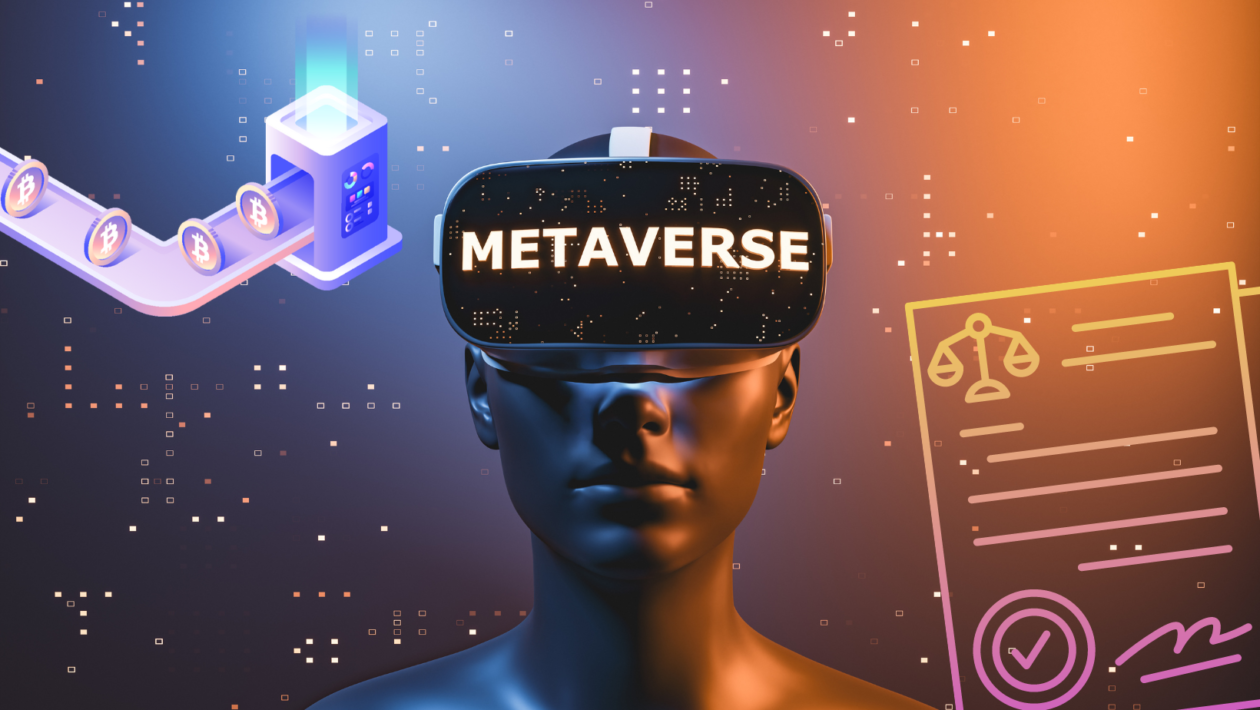Introduction
A new era of digital encounters has arrived, thanks to the development of modern technologies. The idea of the “Metaverse” has drawn a lot of interest since it provides a virtual reality setting where people may communicate, mingle, and transact commerce. With the development of the Metaverse, a new economy powered by digital assets and cryptocurrencies is emerging. In this essay, we shall examine the dynamics of the Metaverse economy, the function of digital assets and cryptocurrencies, and the potential and difficulties it poses.
Getting to Know the Metaverse Economy
The ecosystem of economic activities that take place in virtual reality environments is referred to as the “metaverse economy.” It includes many contacts, including social gatherings, leisure activities, and business and entrepreneurship. The Metaverse is developing into a thriving digital goods, services, and experiences market as more individuals immerse themselves in virtual environments.
The Metaverse’s Use of Digital Assets
The Metaverse economy is built on a foundation of digital assets. These resources can include virtual money, virtual products (including clothes, accessories, and virtual art), virtual real estate, and more. In the virtual world, these things have intrinsic value, and people are prepared to spend real money to buy them.
The Rise of Cryptocurrencies in the Metaverse
The economy of the Metaverse is a perfect fit for cryptocurrencies. Virtual currencies like Bitcoin and Ethereum are becoming commonly accepted as a form of exchange in virtual reality environments. This makes it possible for borderless and frictionless transactions, enabling people worldwide to engage in the Metaverse economy.
Defining Ownership in the Virtual World using NFTs
NFTs, or non-fungible tokens, have completely changed how we think about ownership in the digital world. Unique digital assets, NFTs, signify ownership of a specific product or content. This technology has given creators new opportunities to commercialize their work by allowing them to sell digital artwork, virtual properties, and other unique materials.
Real Estate Investment in the Metaverse: Virtual
In the Metaverse economy, the market for virtual real estate is expanding. Prime positions within virtual reality landscapes are widely sought, much like in the real world. With the expectation that their value would rise as the Metaverse develops, investors are buying virtual land, properties, and places.
Marketplace for virtual goods and services
The metaverse economy has a vibrant market for virtual products and services. Users can purchase, sell, and trade digital goods, from virtual fashion accessories to hosting events. Users’ ingenuity and the need for unique, one-of-a-kind experiences drive this market.
Blockchain Technology’s Function
The Metaverse economy depends heavily on blockchain technology. It offers a safe, decentralized infrastructure for tracking digital assets, confirming transactions, and maintaining openness. Smart contracts make it simpler for individuals and enterprises to conduct virtual trade by enabling automated and trustless transactions.
Administration and Decentralization
One of the guiding principles of the Metaverse economy is decentralization. Decentralized platforms—where decision-making is shared among participants—are often used to create virtual reality experiences. This gives consumers more control over the virtual environment while preventing it from being dominated by a few large entities.
Chances and Difficulties in the Metaverse Economy
The metaverse economy offers many opportunities for business owners, inventors, and entrepreneurs. It opens up fresh markets, sources of income, and innovation opportunities. However, it also has issues with security, scalability, and guaranteeing a diverse and inclusive virtual environment.
Security and Regulation Issues
Regulatory structures are required to protect users and guarantee ethical behaviour as the Metaverse economy expands. Security issues, including online fraud and theft, must also be addressed to keep people’s confidence in the virtual economy.
The Metaverse Economy’s Future
Despite being in its infancy, the metaverse economy has enormous promise. The Metaverse will play a more significant role in our daily lives as technology develops, influencing how we interact with others, do our jobs, and do business.
Conclusion
The growth of the Metaverse economy has brought about a fundamental shift in how we engage with the digital world. The Metaverse promises a new frontier of potential and difficulties with digital assets, cryptocurrencies, and NFTs at the forefront. Businesses and individuals must adjust to this dynamic virtual reality environment as the Metaverse develops.
FAQs
Can I exchange virtual goods for real money again?
Yes, some platforms and exchanges facilitate the conversion of many virtual assets back to real money.
Do NFTs only apply to digital art?
Despite their popularity in the art world, NFTs can also signify ownership of other digital goods, such as virtual clothing and real estate.
Is everyone able to enter the Metaverse?
Currently, internet connectivity and appropriate hardware are needed to access the Metaverse. Accessibility will probably get better as technology develops.
Virtual transactions: are they safe?
Although the Metaverse economy is based on blockchain technology, users must still take caution and adhere to the best security standards.
In the Metaverse, are I able to launch a business?
Yes, there are several potentials for company owners to develop original goods, services, and experiences in the Metaverse.

